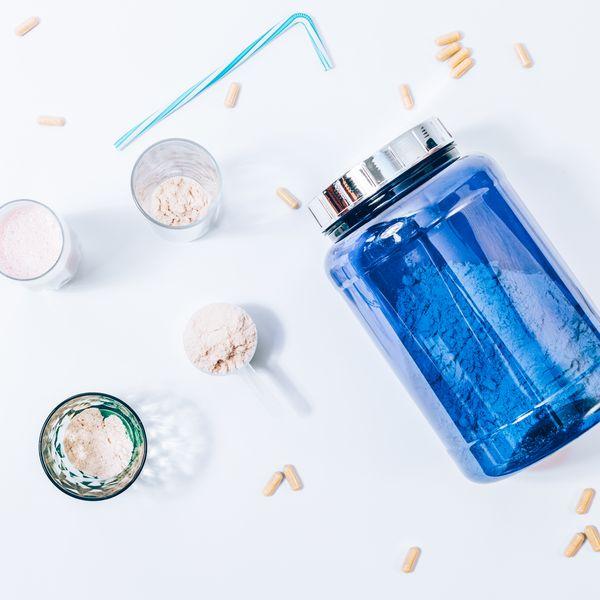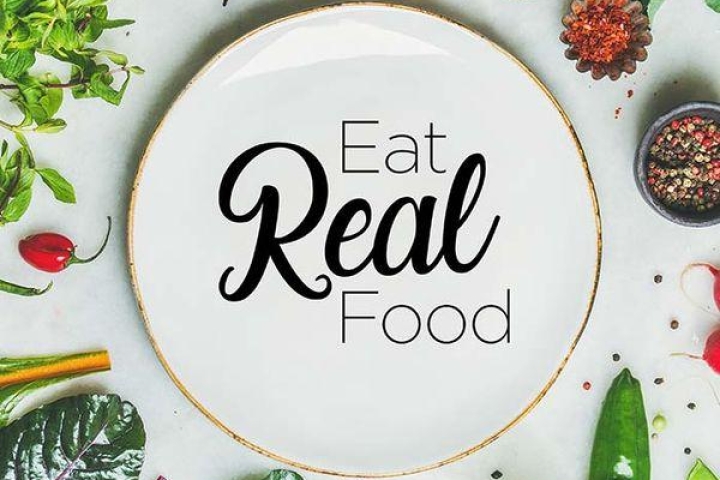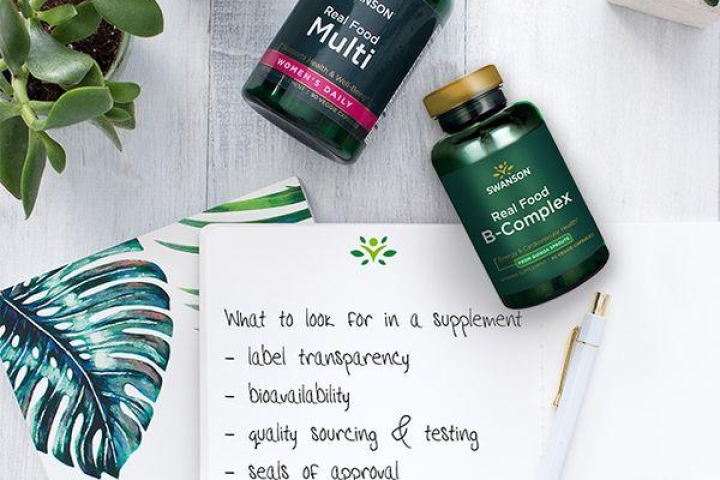Protein Benefits The Best Types of Protein & How Much Protein You Need
Getting enough protein every day can benefit your body in some surprising ways. From weight maintenance to skin health, muscle preservation and more—protein nourishment helps us be our most energized, radiant, healthiest selves.
But shopping for the best protein powder may leave you with a lot of questions. What is a complete protein? How much protein do you really need? How exactly does protein help my body?
We’re here to answer these questions as well as help you choose the best protein to meet your daily needs.
The Benefits of Protein
Protein is a part of every cell in our bodies. It’s needed for building and repairing tissue, making enzymes, hormones and much more.1 Protein is also a building block of bones, blood, muscles, cartilage and skin.1
Your entire body uses protein in some way, so it’s important to make sure you get enough. Here are some of the specific ways protein benefits your body.
Protein for Satiety & Weight Management
Research shows that protein may play a role in weight management by increasing satiety and boosting metabolism.2,3 By keeping you feeling full longer, protein makes you less likely to snack between meals or overeat later. That makes protein an excellent choice at breakfast, mid-afternoon to hold you over until dinner, or anytime you need a boost.
A study conducted at the University of Missouri-Columbia demonstrated that people who ate a protein-rich breakfast were much less likely to overeat throughout the entire day.4 Their research indicated that protein reduces hunger signals and helps control food motivation and reward-driven eating. Pair the satiety benefits with the potential metabolic boost from protein, and you have a winning combo for weight management.3
Protein for Sustained Energy
It can be tempting to reach for a high carb snack when you’re looking for an energy boost, but protein is a better option. Your body breaks carbohydrates down quickly, which leads to that all-too-familiar crash that comes later.
Protein takes longer for the body to break down than carbohydrates.5 It’s a longer-lasting energy source, plus you get the added, whole-body benefits protein provides.
And if you don’t consume enough protein, that could be why you’re tired in the first place!5 So step up your daily protein intake to keep your energy levels up too. You can even add protein powder to your morning coffee to double-up on energy support.
Protein for Healthy Muscles
Let’s quickly clear up a protein myth. Protein alone does not make you bulky. Protein does help your muscles recover from use—regardless if that use was from time spent in the garden, the office, or the gym—and it helps give your body the materials it needs to build new tissue, including muscle.1
Protein intake also helps preserve lean muscle during weight loss, which is important because during weight loss our primary goal is to lose fat but retain healthy muscle tissue.6 Upping your protein intake can also help minimize the natural loss of muscle that happens as we age.7
Overall, protein is like a best friend to our muscles, giving them the nourishment they need to stay healthy, strong and energized.
Protein for Hair, Skin & Nails
It’s no secret that what we eat shows on our skin, but with protein that is especially true! Protein is a major part of your skin, hair and nails, and your body needs high-quality protein to keep them healthy.8 Plus, new research suggests that getting enough protein in your diet may even have anti-aging benefits.9
With all the potential benefits, adding protein to your diet is a great way to step up your wellness game. But how much protein should you consume each day? That depends! Keep reading to learn more.
Daily Protein Intake
Like carbs and fat, protein is a macronutrient, meaning we need a relatively large amount of it to stay healthy. But unlike carbs and fat, your body doesn’t store protein from day to day.1 That means it’s up to you to meet your body’s protein needs each and every day.
How much protein do you need? That depends on your age and body weight. The Dietary Reference Intake (DRI) for adults over the age of 18 is 0.8 grams per kilogram of body weight.10 By this calculation, a person weighing 155 pounds (70 kilograms) should aim for 56 grams of protein per day.
But studies show that people who are physically active may need more, and older adults might want to consider increasing their intake to aid in muscle preservation and help minimize loss of strength.11,12 Older adults may need between 1 to 1.3 grams per kilogram of body weight per day.12 Strength athletes may need between 1.4 to 1.8 grams per kilogram of body weight, and endurance athletes between 1.2 to 1.4 grams per kilogram of body weight each day.11
Although no maximum intake of protein has been defined, it’s best to aim for the DRI unless your physician or dietitian recommends otherwise. Take into consideration the amount of protein you get from food, as well as from protein powder supplements.
What is a Complete Protein?
“Complete protein” certainly sounds like something we should be getting more of in our diets, and you’ve probably heard the term in the media before. But do you know what a complete protein is? Put simply, it’s the number and type of amino acids in the protein that makes it complete or incomplete.
Proteins are actually made up of amino acids. There are 20 amino acids that make up various types of proteins. Of those 20 amino acids, our bodies are capable of producing 11 on their own—but the other 9 must come from food sources.13
To be categorized as a “complete protein,” a protein source must contain those 9 essential amino acids that we need to obtain from food sources because the body can’t produce them.
The 9 essential amino acids are:
- histidine
- isoleucine
- leucine
- lysine
- methionine
- phenylalanine
- threonine
- tryptophan
- valine
Incomplete protein sources are either missing or low in one or more of these 9 essential amino acids. However, incomplete proteins can be complementary, meaning that two or more incomplete protein sources can be eaten over the course of the day to provide all essential amino acids.
Complete Protein for Vegetarians and Vegans
Can vegetarians and vegans get complete protein? Absolutely! You don’t need to get every amino acid all in one meal. It’s just important to get them all throughout your day. But there are several vegan sources of complete protein including quinoa, buckwheat, hemp seed, chia seeds and soy. You can also get all 9 essential amino acids in Naturespan's Certified Organic Hemp Protein which is vegan, non-GMO and contains no artificial ingredients.
The Best Types of Protein
The two most popular protein powder sources are whey protein and plant protein. But what’s the difference between whey concentrate and whey isolate? And is one type of plant protein better than another? Here’s the scoop:
Whey Protein
Whey protein is a complete protein derived from milk or extracted from dairy while making cheese.14 There are two types of whey protein—concentrate and isolate.
Whey protein concentrate undergoes less processing than whey protein isolate. It is low in fat and carbs and may contain some lactose. Whey protein isolate undergoes further processing to remove all of the fat and lactose.14 Whey protein concentrate retains more of the beneficial nutrients found naturally in whey, but these are both great options for meeting your daily protein needs.
Naturespan Real Food Whey Protein contains both whey protein concentrate and whey protein isolate for complete whey protein nutrition. It’s made from whole food ingredients and comes in two amazing, all-natural flavors—vanilla ice cream and chocolate ice cream—that make your daily protein a delicious treat.
Plant Protein
Plant-based protein is available in several different forms including pea protein, hemp protein, soy protein, brown rice protein, flax protein, and sacha inchi protein. Sacha inchi is a superfood seed that grows primarily in the Amazon rainforest of Peru. It is prized for its high concentration of complete protein and omega-3 fatty acid content, and sacha inchi is considered to be a superior source of complete protein over soy.15
The most important consideration when it comes to choosing a plant-based protein powder is the amino acid profile, but it’s a good idea to vary your protein sources for nutritional diversity.
Plant-based protein is an obvious choice for vegans or anyone looking to meet their nutritional needs with plant-based foods. And experts say there is evidence that replacing meat-based protein in our diets with plant-based protein may have benefits for heart health.15
Try Naturespan's Certified Organic Hemp Protein or Organic Soy Protein Powder for a complete source of vegan protein. And stay tuned because we will soon launch Real Food Plant Protein, featuring a complete amino acid profile from pea protein, brown rice protein, and sacha inchi protein, along with other real food ingredients like pumpkin and kale, in two delicious, all-natural flavors.
Why Choose Real Food Protein?
When we can’t realistically get the protein we need from food alone, the next best option is supplemental nutrition derived from whole food sources with nothing artificial—just clean protein goodness.
But if your protein supplement doesn’t taste great, you probably won’t make it a healthy habit. We were frustrated with chalky protein powders and less-than-optimal flavors, so we created our whole food protein options with rich, all-natural flavors that make Naturespan Real Food Protein feel more like a treat than a chore.
Use it to boost your morning protein intake by adding it to your coffee, or make a shake to take with you on the go. Keep a stash of Real Food Protein Powder at the office as an afternoon pick-me-up or to hold you over until dinner. Or enjoy it in place of dessert in the evening! It’s a wholesome source of supplemental protein nutrition you can confidently enjoy any time you need a boost.
Real Food Whey ProteinNourish your body with 22 grams of whey protein from real food! Available in crave-worthy vanilla and chocolate ice cream flavors, this high-quality protein blend will leave you feeling energized & satisfied any time of day. And the simple, whole food ingredients make it easy on your stomach!
How Many Protein Shakes Can I Drink Per Day?
Protein shakes can be consumed as often as you like as long as you aren’t exceeding your daily intake requirements of protein, but they shouldn’t be viewed as complete meal replacements.
Our Real Food Whey Protein contains 22 grams of protein per 1 scoop serving, so 3 shakes per day would provide 66 grams of protein. That’s a good target for someone who weighs 175 to 180 pounds. Calculate your protein needs based on the formula mentioned earlier in this article and consider your food intake as well.
Quick Guide to Protein-Rich Foods16
- 3-ounce piece of oven-roasted chicken breast—about 14 grams of protein
- 8-ounce piece of grass-fed steak—about 52 grams of protein
- 7-ounce serving of plain Greek yogurt—about 20 grams of protein
- 8-ounce serving of low-fat milk—about 10 grams of protein
- 1 large egg—about 6 grams of protein
- ½ cup of low-fat cottage cheese—about 12 grams of protein
- 2 tablespoons of reduced fat peanut butter—about 9 grams of protein
- 1 cup of canned black beans—about 14 grams of protein
- 2 ounces of mixed nuts—about 11 grams of protein
Real Food Protein for Your Real Life
Meeting our protein needs and nutritional goals with modern diets can be challenging. Naturespan Real Food Protein gives you the protein nourishment you need from simple ingredients in delicious, all-natural flavors you’ll crave. Try it yourself completely risk-free with our 100% money back guarantee! We can’t wait to hear what you think.
You might also like reading Real Food: A Revival or a Revolution? and Live with Vitality: 7 Things to Help Boost Your Vitality. And be sure to sign up for Naturespan Health emails so you’ll be the first to know about new products, our best discounts, and health tips from our experts.
About Lindsey Toth, MS, RDRegistered Dietitian, Naturespan Health
Lindsey is a nationally recognized registered dietitian and nutritionist with a soft spot for pie. She empowers people to take charge of their health by finding the balance between the pleasure and nourishment in food.
Her philosophy is that you should take care of your body because it’s the only permanent home you have. It’s what inspired her to pursue a career in nutrition and, ultimately, led her to Naturespan Health.
Sources
1 The Benefits of Protein. WebMD. https://www.webmd.com/men/features/benefits-protein#1 (Accessed 09/11/2018)
2 Dietary protein - its role in satiety, energetics, weight loss and health. PubMed. https://www.ncbi.nlm.nih.gov/pubmed/23107521 (Accessed 09/11/2018)
3 Protein, weight management, and satiety. PubMed. https://www.ncbi.nlm.nih.gov/pubmed/18469287 (Accessed 09/11/2018)
4 Eat a protein-rich breakfast to reduce food cravings, prevent overeating later, researcher finds. ScienceDaily. https://www.sciencedaily.com/releases/2011/05/110519113024.htm(Accessed 09/11/2018)
5 8 healthy ways to boost energy. CNN Health. https://www.cnn.com/2012/11/26/health/healthy-energy/index.html (Accessed 09/11/2018)
6 Preserving Healthy Muscle during Weight Loss. PubMed. https://www.ncbi.nlm.nih.gov/pubmed/28507015 (Accessed 09/11/2018)
7 Preserve Your Muscle Mass. Harvard Health Publishing. https://www.health.harvard.edu/staying-healthy/preserve-your-muscle-mass (Accessed 09/12/2018)
8 Protein. FDA. https://www.accessdata.fda.gov/scripts/InteractiveNutritionFactsLabel/protein.html (Accessed 09/11/2018)
9 What to Eat for Glowing Healthy Skin. Science Daily. https://www.sciencedaily.com/releases/2007/11/071109201438.htm (Accessed 09/11/2018)
10 Daily Reference Intakes. Macronutrients. The National Academies of Sciences, Engineering & Medicine. http://www.nationalacademies.org/hmd/~https://www.swansonvitamins.com/media/Files/Activity%20Files/Nutrition/DRI-Tables/8_Macronutrient%20Summary.pdf (Accessed 09/12/2018)
11 Do athletes need more dietary protein and amino acids? PubMed. https://www.ncbi.nlm.nih.gov/pubmed/7550257 (Accessed 09/12/2018)
12 Protein turnover and requirements in the healthy and frail elderly. PubMed. https://www.ncbi.nlm.nih.gov/pubmed/16886097 (Accessed 09/12/2018)
13 Dietary Reference Intakes for Energy, Carbohydrate, Fiber, Fat, Fatty Acids, Cholesterol, Protein, and Amino Acids. The National Academies of Sciences, Engineering & Medicine. https://www.nap.edu/read/10490/chapter/12 (Accessed 09/12/2018)
14 Whey Protein 101: The Ultimate Beginner's Guide. Healthline. https://www.healthline.com/nutrition/whey-protein-101#what-is-it (Accessed 09/12/2018)
15 Nitrogen balance after a single oral consumption of Sacha Inchi (Plukenetia volúbilis L) protein compared to soy protein. A randomized study in humans. US National Library of Medicine. https://www.ncbi.nlm.nih.gov/pmc/articles/PMC5955778/ (Accessed 09/12/2018)
16 National Nutrient Database for Standard Reference. United States Department of Agriculture. https://ndb.nal.usda.gov (Accessed 09/12/2018)
These statements have not been evaluated by the Food and Drug Administration. These products are not intended to diagnose, treat, cure or prevent any disease.




Leave a comment